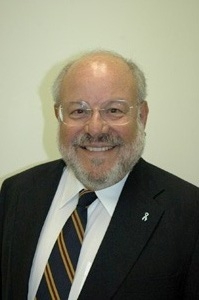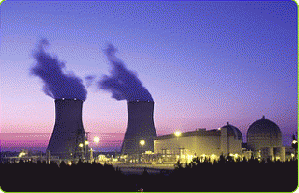Pre-deployed weapons of mass destruction.
That's what nuclear power plants are. And that's another very big reason--demonstrated again in recent days with the disclosure www.rt.com/news/336985-brussels-terror-nuclear-plants/ that two of the Brussels terrorists were planning attacks on Belgian nuclear plants--why they must be eliminated.
Nuclear power plants are sitting ducks for terrorists. With most positioned along bays and rivers because of their need for massive amounts of coolant water, they provide a clear shot. They are fully exposed for aerial strikes.
The consequences of such an attack could far outweigh the impacts of 9/11 and, according to the U.S. 9/11 Commission, also originally considered in that attack was the use of hijacked planes to attack "unidentified nuclear power plants." The Indian Point nuclear plants 26 miles north of New York City were believed to be candidates. http://www.resilience.org/stories/2004-07-25/911-report-reveals-al-qaeda-ringleader-contemplated-ny-area-nuclear-power-plant-p
As the Belgian newspaper Dernier Heure reported last week, regarding the plan to strike a Belgian nuclear plant, "investigators concluded that the target of terrorists was to 'jeopardize national security like never before.'" www.rt.com/news/336985-brussels-terror-nuclear-plants/
The Union of Concerned Scientists in a statement on "Nuclear Security" declares: "Terrorists pose a real and significant threat to nuclear power plants. The 2011 accident at Fukushima was a wake-up call reminding the world of the vulnerability of nuclear power plants to natural disasters such as earthquakes and floods. However, nature is not the only threat to nuclear facilities. They are inviting targets for sabotage and terrorist attack. A successful attack on a nuclear plant could have devastating consequences, killing, sickening or displacing large numbers of residents in the area surrounding the plant, and causing extensive long-time environmental damage." click here
A previously arranged "Nuclear Security Summit" is to be held this week in Washington, D.C. with representatives of nations from around the world and with a focus on "nuclear terrorism."
Last week, in advance of the "summit" and in the wake of the Brussels suicide-bombings at the city's airport and a subway line, Yukiya Amano, director general of the International Atomic Energy Agency (IAEA), said: "Terrorism is spreading and the possibility of using nuclear material cannot be excluded. Member states need to have sustained interest in strengthening nuclear security. The countries which do not recognize the danger of nuclear terrorism is the biggest problem." http://news.yahoo.com/un-atomic-chief-warns-nuclear-terrorism-134919666.html
However, a main mission of the IAEA, ever since it was established by the UN in 1957 has been to promote nuclear power. It has dramatically minimized the consequences of the catastrophic accidents at Chernobyl and Fukushima and routinely understated all problems with atomic technology.
The "Nuclear Security Summit," with the IAEA playing a central role, is part of a series of gatherings following a speech made by President Barack Obama in Prague in 2009 in which he said "I am announcing a new international effort to secure all vulnerable nuclear material around the world." https://www.whitehouse.gov/the-press-office/remarks-president-barack-obama-prague-delivered
In a press release this past August, White House spokesman Josh Earnest said this week's meeting "will continue discussion on the evolving [nuclear terrorism] threat and highlight steps that can be taken together to minimize the use of highly-enriched uranium, secure vulnerable materials, counter nuclear smuggling and deter, detect, and disrupt attempts at nuclear terrorism." https://www.armscontrol.org/ACT/2015_09/News-Briefs/Date-Set-for-2016-Nuclear-Security-Summit
And, like the IAEA--formed as a result of a speech by U.S. President Dwight Eisenhower promoting "Atoms for Peace" at the UN--officials involved with nuclear power in the U.S. government and the nation's nuclear industry have long pushed atomic energy and downplayed problems about nuclear power and terrorism.
As the Union of Concerned Scientists (UCS) says in its "Nuclear Security" statement, "The adequacy of a security system depends on what we think we are protecting against. If we have underestimated the threat, we may overestimate our readiness to meet it. The NRC [U.S. Nuclear Regulatory Commission] has sometimes used unrealistically modest assumptions about potential attackers. The design basis threat (DBT) is the official definition of the security threats power plant management is required to protect against".After 9/11, UCS criticized the DBT for nuclear plants on these grounds, among others."
UCS says the NRC "ignored the possibility of air-and water-based attacks"it did not address the possibility of large attacking groups using multiple entry points, or of an attack involving multiple insiders"it concentrated on threats to the reactor core, failing to address the vulnerability of spent fuel storage facilities." Since 2011, says the UCS, the NRC "finally revised its rules to address the threat of aircraft attack for new reactor designs--but at the same time has rejected proposed design changes to protect against water- and land-based attacks."
There is "also concern about the testing standard used," notes UCS. "In July 2012, the NRC adopted the new process. However, as a result of industry pressure, the standards were watered down.."
(Note: You can view every article as one long page if you sign up as an Advocate Member, or higher).






